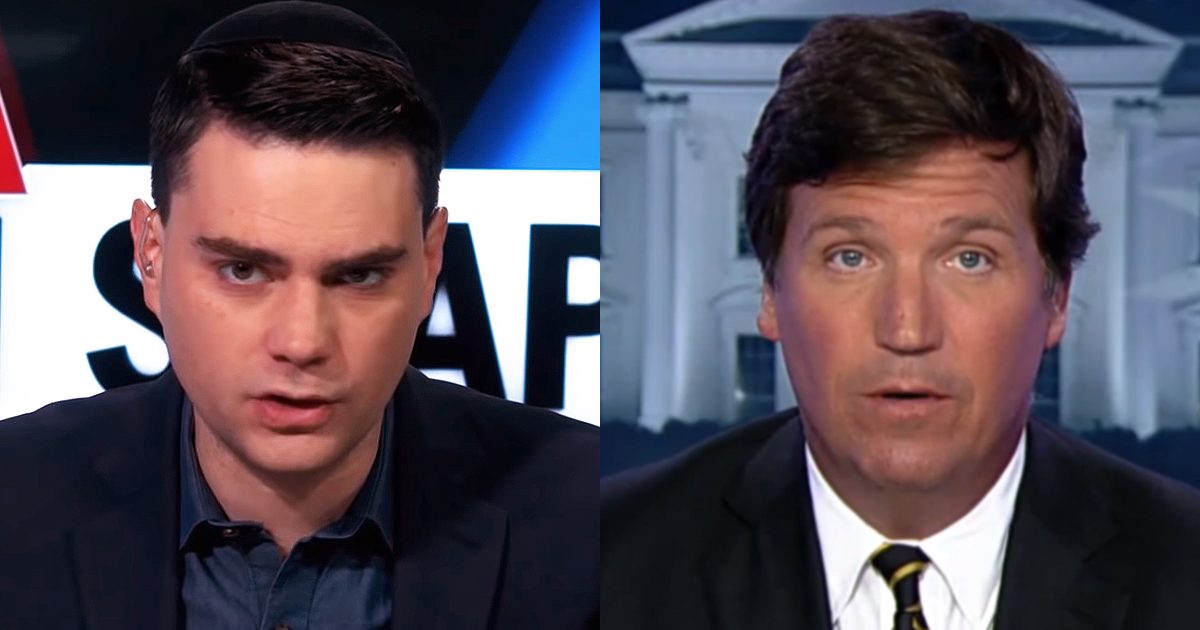The Right’s Identity Crisis: Ben Shapiro Becomes Its Moral Leader by Calling Out Tucker Carlson

The American right is facing a crisis of definition. After years of drifting — ideology giving way to vibes, personality eclipsing principle — a question has finally forced itself into view: Who gets to decide what it means to be “right-wing”?
That question snapped into focus when Tucker Carlson chose to host Nick Fuentes, an openly antisemitic, white-supremacist troll. Fuentes is not complicated. He is clear. He is poison. Carlson’s interview wasn’t journalism; it was a declaration of borderlessness. If platforming is inherently neutral, then even the most explicit hatemongers can be folded into the tent.
Into this hazy perimeter stepped an unexpected counterforce: Ben Shapiro.
Shapiro is no moderate, nor gentle, nor allergic to provocation. But he does believe in lines — boundaries that define a movement not only by who it includes, but who it excludes. And when Carlson chose not to question Fuentes, Shapiro called it out directly. He challenged Megyn Kelly for giving Carlson a pass. He canceled appearances with others who had offered similar grace.
In a conservative ecosystem built on mutually assured silence, this was apostasy.
The core of the dispute isn’t Fuentes himself; it’s the perimeter. Carlson’s position is simple: platform everyone, let the crowd decide. Gatekeeping is censorship; friction is elitism; scrutiny is judgment that belongs only to the audience.
Shapiro’s position is just as simple: if everything qualifies as right-wing, then the term means nothing. A movement that cannot define what it excludes becomes a vessel for anyone willing to speak loudly enough. The vacuum will be filled — often by the most extreme voice available.
It’s dominated conservative media since 2016. Populist entertainment overwhelmed institution-based conservatism. Trump destroyed ideological gatekeeping by treating politics as brand loyalty. The only principle that remained was opposition — to Democrats, to elites, to “the media,” to whatever enemy the algorithm served that day.
Carlson flourished in that terrain. His gift has never been argument; it is implication. He launders extremism through performance: “just asking questions,” “just letting people talk,” “just curious.” The deniability is the point. He can host a Holocaust-minimizing white nationalist while pretending he’s merely opening the floor.
But ideas don’t stay neutral once amplified. They metastasize. And at some point, a movement has to decide whether it stands for something — or merely stands against.
That’s why Shapiro’s intervention matters. He’s not defending Jewish dignity so much as conservative viability. To allow open White Nationalism inside the tent is to surrender the tent entirely. The movement becomes unrecognizable — and ultimately unelectable.
The stakes are not abstract. Movements that refuse to police their edges get captured by them. Parties that lose the ability to say “not us” soon lose the ability to speak for anyone. If the right cannot draw a line at Fuentes — someone whose brand is eliminationist racism — then what line can it draw?
Shapiro’s answer is the only grown-up one: A movement without boundaries is not a movement. It’s chaos.
The conservative family feud now underway is not about etiquette. It’s about survival. Carlson represents the entertainment-first model that asks nothing of the audience except attention. Shapiro represents the last flicker of an older instinct — that belief requires definition, and definition requires exclusion.
Fuentes isn’t the crisis; he’s just the accelerant of a fire already burning. Now the right must decide whether to put it out — or let the whole thing burn.
This is an opinion piece. The views expressed in this article are those of just the author.
New: The Mediaite One-Sheet Newsletter
Your daily summary and analysis of what the many, many media newsletters are saying and reporting. Subscribe now!






Comments
↓ Scroll down for comments ↓